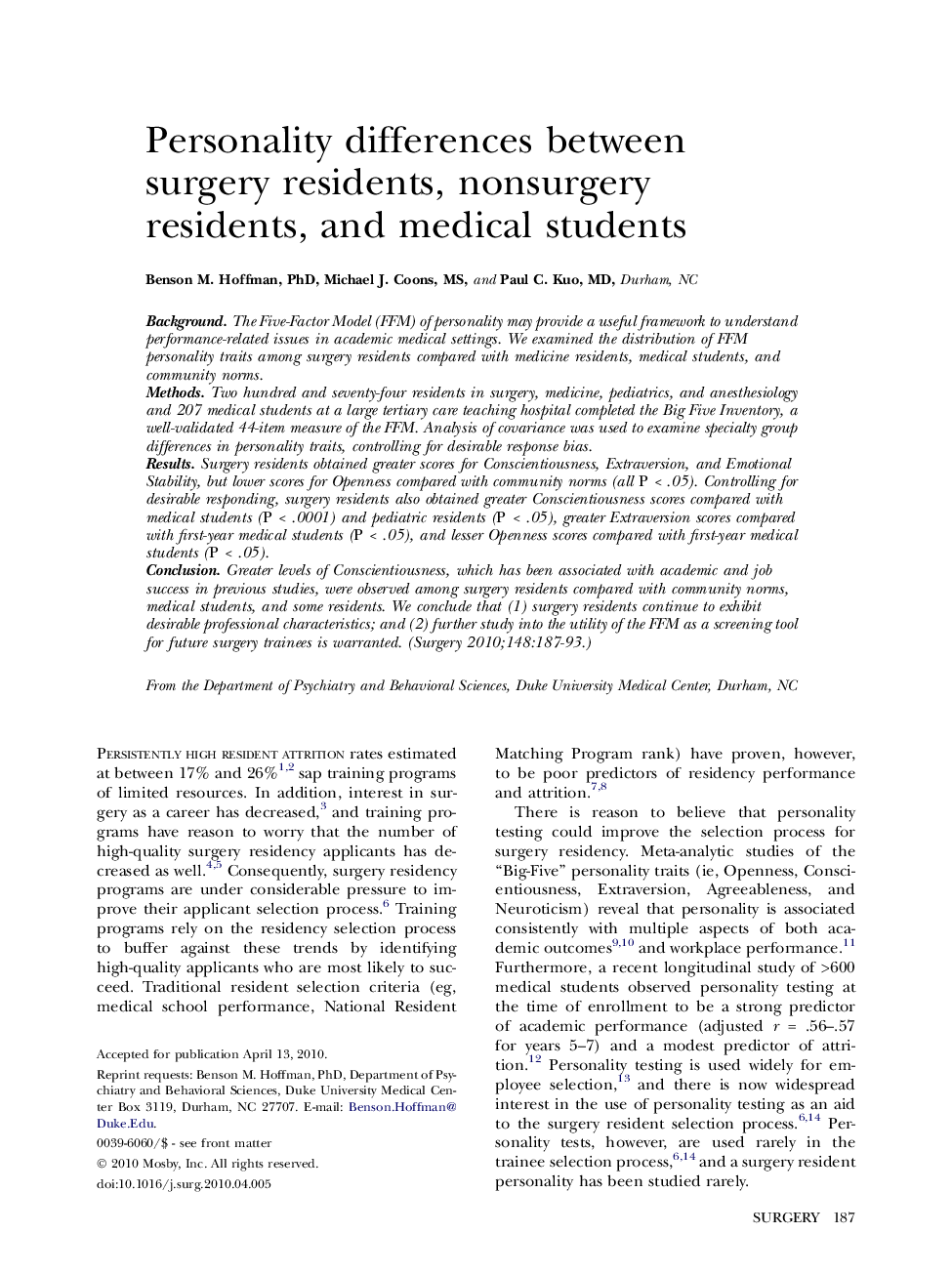| Article ID | Journal | Published Year | Pages | File Type |
|---|---|---|---|---|
| 4308516 | Surgery | 2010 | 7 Pages |
BackgroundThe Five-Factor Model (FFM) of personality may provide a useful framework to understand performance-related issues in academic medical settings. We examined the distribution of FFM personality traits among surgery residents compared with medicine residents, medical students, and community norms.MethodsTwo hundred and seventy-four residents in surgery, medicine, pediatrics, and anesthesiology and 207 medical students at a large tertiary care teaching hospital completed the Big Five Inventory, a well-validated 44-item measure of the FFM. Analysis of covariance was used to examine specialty group differences in personality traits, controlling for desirable response bias.ResultsSurgery residents obtained greater scores for Conscientiousness, Extraversion, and Emotional Stability, but lower scores for Openness compared with community norms (all P < .05). Controlling for desirable responding, surgery residents also obtained greater Conscientiousness scores compared with medical students (P < .0001) and pediatric residents (P < .05), greater Extraversion scores compared with first-year medical students (P < .05), and lesser Openness scores compared with first-year medical students (P < .05).ConclusionGreater levels of Conscientiousness, which has been associated with academic and job success in previous studies, were observed among surgery residents compared with community norms, medical students, and some residents. We conclude that (1) surgery residents continue to exhibit desirable professional characteristics; and (2) further study into the utility of the FFM as a screening tool for future surgery trainees is warranted.
